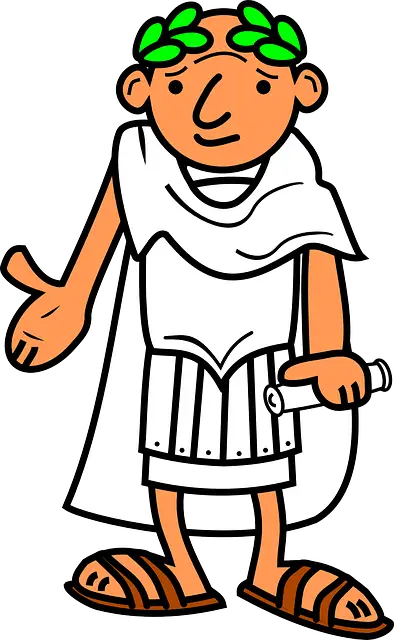Emperor Nero
 Early Life: Nero was a Roman Emperor born in 37 AD who ruled Roman Empire from 54 to 68 AD. He came from an imperial background. His mother Agrippina the Younger was a sister of Emperor Caligula and Nero himself was a great nephew of Emperor Claudius. He was also related to famous Roman politician and general, Mark Antony. During the reign of his uncle Caligula, Nero and his mother were sent on a forced exile after they fell out of favor with Caligula. After the assassination of Caligula, Claudius ascended to throne and married Nero’s mother.
Early Life: Nero was a Roman Emperor born in 37 AD who ruled Roman Empire from 54 to 68 AD. He came from an imperial background. His mother Agrippina the Younger was a sister of Emperor Caligula and Nero himself was a great nephew of Emperor Claudius. He was also related to famous Roman politician and general, Mark Antony. During the reign of his uncle Caligula, Nero and his mother were sent on a forced exile after they fell out of favor with Caligula. After the assassination of Caligula, Claudius ascended to throne and married Nero’s mother.
Ascension to Throne: Emperor Claudius had two sons from previous marriages and after marrying Agrippina, he also adopted Nero as his son. One of his sons died at a young age and while the other son, Britannicus lived, Claudius preferred Nero over him. He groomed and appointed Nero as his heir. After Claudius died in 54 AD, Nero became the Roman emperor. At the time of his ascension, Nero was only 17 years old and was the youngest Roman Emperor until that time.

Reign as Emperor: The initial years of Nero’s rule were marred by the struggle for control and influence between his mother Agrippina and his close advisors Seneca and Burrus. Agrippina’s desire to exercise greater authority in matters of state resulted in strained relations between her and Nero. Nero had a special liking for arts and architecture. He built many theaters and participated in acting and singing activities.
While he is infamous for playing fiddle while Rome burnt (Great Fire of Rome- 64 AD), some historians believe that he in fact did all he could to help victims of fire and initiated a huge rescue and relief effort. Many historians wrote that Nero was popular among common people for his generosity and decrees in favor of poor, while rich and powerful despised him.
Many historians however, describe him as unjust, cruel and temperamental. Some historians have described him in a more positive way. Historian Josephus has written that accurate depiction of Nero in history has been compromised by either those historians who had a blind hatred for him or those who gained favors from him.

Important Events during Nero’s Reign: Early years of Nero’s reign were lost in a power struggle between his mother and his close advisors. Agrippina, after failing to control Nero, even tried to install her step son Britannicus as emperor. However, Britannicus died under suspicious circumstances before he could be declared an adult. The menace ended with Agrippina’s execution, ordered by Nero.
He then consolidated his power base. During his reign Rome fought a five year long war with Parthia (58-63 AD), quelled a British revolt (60-61 AD) and fought the First Roman-Jewish war (66-70 AD), which ended after Nero’s death.

Revolt Against Nero and His Death: In 68 AD two of Nero’s influential governors Vindex and Galba revolted against his taxation policies and joined hands against him.
While Nero’s loyal forces defeated and killed Vindex, Galba grew strong and popular and even Nero’s army generals and officers stopped taking orders from him. Nero lost all support in Rome and Senate also declared him a public enemy. Nero ran away from Rome with few close aides and in face of approaching enemy forces, made his personal secretary,Epaphroditos kill him before he could be arrested. He was the first Roman emperor to commit suicide.
With his death, the Julio-Claudian dynasty also ended.

Legacy: While many historians have a negative opinion of Nero, some historians have written about positive aspects of his rule and personality. He is however, widely considered as the first sponsor of state persecution of Christians. He is also alleged by some as the killer of apostles Paul and Peter. Early Christian writers portrayed him as the anti-Christ who will come back and bring destruction.



